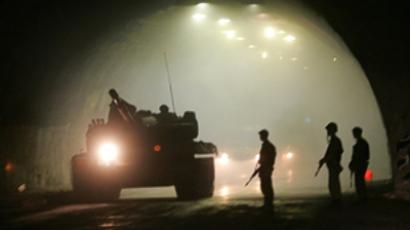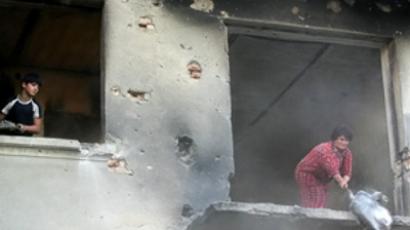5 years after 5-Day War: Russia and Georgia bury the hatchet
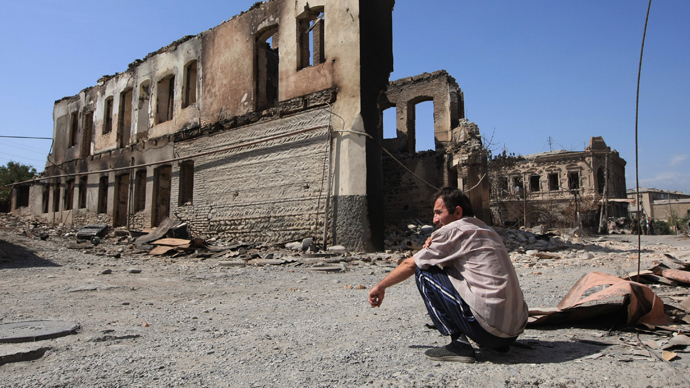
Georgian goods such as wine and mineral water are being sold in Russian stores again – a fact as surprising today as it was ordinary before the war in South Ossetia in 2008 and subsequent severing of almost all relations between the nations.
And it is not only businesspeople - Russian and Georgian officials are cautiously but eagerly looking for common ground and suggest measures as radical as the possible abolition of the visa regime amid the absence of respective diplomatic missions in Moscow and Tbilisi.
The changes are apparent. But even as defeated and bitter Georgia is admitting mistakes and offering compromise, can we see such readiness in international public opinion, let alone in the stance of the mainstream mass media?
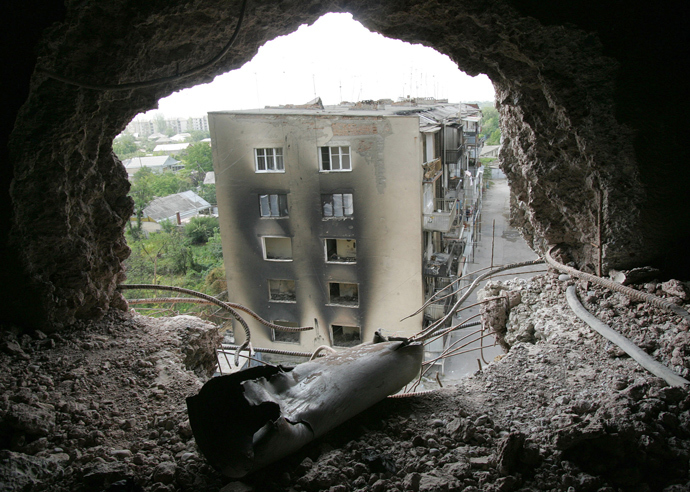
The hard start
The war of 2008 started suddenly (even though there were warnings, many people chose not to believe in the possibility of open military conflict), and then escalated even faster on the tails of the initial coverage of the conflict in the West, which was startlingly biased.
In the early hours of August 8, 2008, the Georgian military started to shell the South Ossetian capital, Tskhinval, with artillery and multiple-launch missile systems, violating the earlier-reached ceasefire agreement. The targets included a Russian peacekeepers’ base and residential districts of the city, causing huge losses among civilians – according to South Ossetian officials between 1,500 and 2,000 non-combatants were killed in this attack.
In the afternoon of the same day, then-Russian President Dmitry Medvedev ordered the military to start the ‘Operation to force Georgia to peace’. Russian aircraft destroyed Georgian military bases and airfields, and Russian tanks rolled into the republic, quickly ousting the Georgian forces and forcing them far into Georgian territory, stopping just short of the capital, Tbilisi. Infantry and paratroopers followed, securing control on the ground. By August 12 the military stage of the operation was over.
The military casualties from the Russian side were over 70 people dead, while the Georgian military said they lost over 150 servicemen. Hundreds of people were wounded.
On August 16, Medvedev signed the plan for a peace settlement that was earlier signed by leaders of Georgia, South Ossetia and Abkhazia.
The headlines of leading UK and US news agencies, TV channels and newspapers openly accused Russia of invading its neighboring country, regarding South Ossetia as unquestionably Georgian land.
CNN used captions such as ‘Russia invades Georgia’, ‘Russia attacks neighbor’ and ‘Georgia faces Russia onslaught’, while showing footage of the South Ossetian capital under heavy Georgian shelling.
Others presented the story in a similar fashion with headlines including “Georgia 'overrun' by Russian troops as full-scale ground invasion begins” (Daily Mail), “Georgia says phonetaps show Russia launched war” (Reuters).
Moreover, a look into the diplomatic cables that became accessible thanks to WikiLeaks shows that even the US and British embassies provided their foreign ministries with mass media reports, with little or no analysis into the real situation and its possible consequences.
It took a long time and a huge effort to start the changes. Only after the European Union’s commission released the results of its special research in September 2009 was the mass media compelled to agree with its conclusions – it was Georgia that started the attack, civilians and peacekeepers were killed and Russia’s retaliation was a part of its peacekeeping obligations.
New Georgian leaders aim at reconciliation
The Georgian leadership and President Mikhail Saakashvili continued to accuse the Russian side of all possible sins. At that time it looked a like a no-lose political move – with all relations between Russia and Georgia completely severed and Russian leaders flatly denying any possibility of future talks with the aggressors, Saakashvili could appeal to the nationalist sentiments of voters without fear of consequences.
Or so it seemed until in 2011 billionaire businessman Bidzina Ivanishvili entered the Georgian politics with the agenda to stop confrontation and try to make peace with the northern neighbors to mutual benefit.
In 2012, Ivanishvili’s party Georgian Dream won the parliamentary elections, effectively ousting Saakashvili from political life and raising questions of an investigation with possible future trial of the president and his allies over charges of criminal negligence.
Ivanishvili partially maintains the nationalist stance, refusing to recognize South Ossetia and Abkhazia as independent states – any different behavior would be close to political suicide in an extremely proud nation that still remembers the crushing defeat from a much stronger neighbor – but even these cautious attempts at reconciliation have been welcomed by senior Russian officials.
Early this week Zurab Abashidze, Georgia’s plenipotentiary in charge of relations with Russia, voiced hope that the neighboring nations could not only restore diplomatic relations, but even scrap the visa regime in the future. The countries have already passed the first phase, involving the resolution of practical issues related to trade, transport and other economic issues, he said.
In late July, Prime Minister Ivanishvili himself told the press that he stood for the restoration of diplomatic relations and hoped to meet with Russian President Vladimir Putin. The Georgian leader praised the resumption of trade relations and added that Russia and Georgia were planning to restore direct flights and a simplified visa regime, improving the situation step by step.
In this week’s interview Ivanishvili resolutely ruled out the
possibility that Georgia would again use military force to
attempt to resolve territorial issues.
Russia supports friendship and pragmatism
Russian Prime Minister Dmitry Medvedev gave an extensive interview to RT earlier this week in which he approved of the Georgian authorities’ pragmatic stance and announced that Russia would welcome the return of Georgian diplomats to Moscow.
Also this week, Medvedev spoke to Georgian TV channel Rustavi and acknowledged these positive signals, assuring the public that there was always a chance for normalization of mutual relations.
However, he set one condition - Georgia must recognize and accept what happened in 2008.
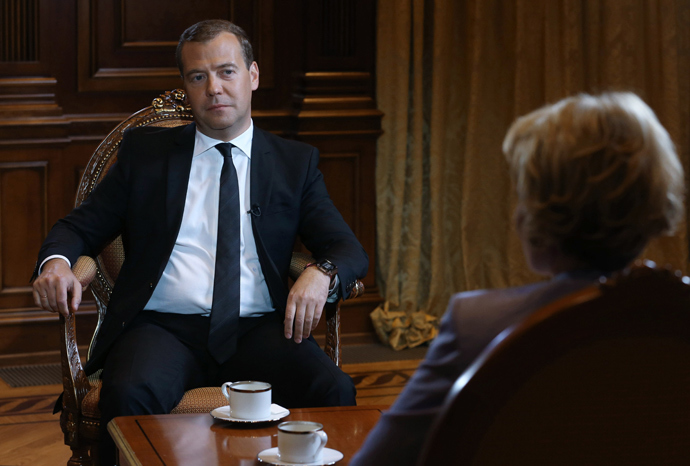
“This most regrettable page of our relations of recent years will be turned and gone together with disappearance of Saakashvili and some other people from the political scene,” Medvedev told the channel.
But as Georgia and Russia are taking the complicated steps to
turn the page, the mainstream mass media hardly give any coverage
to these attempts. The reports from the regions now boil down to
travel notes (with a fair share of Georgian nostalgia over the
lost territories) and rare news reports such as the recent
accounts of NATO Secretary-General Anders Fogh Rasmussen, who in
early June chided the Russian peacekeeping force for putting
fences on the border with Georgia.
‘Ossetian American’ insight
Born in Tampa, Florida, Joe Mestas is married to an Ossetian woman and has traveled in South Ossetia for about a decade. In August 2008 he was in South Ossetia and personally witnessed the war. His wife and daughter were visiting relatives in a small town near the Russian border and were caught in an air raid by Georgian bomber aircraft.
These events caused Mestas to devote himself to spreading the information about Georgia’s role in starting the war and on the real situation in the republic. He stayed in the region for about a year, despite dangers and hardships, and worked as a photo journalist for South Ossetian mass media in the hope that his collection of pictures and eyewitness accounts would prove to the Western public that Georgia was responsible for the war and for attacks on civilians.
After receiving a South Ossetian passport in 2006, Joe Mestas holds dual citizenship, which allows him to travel to Russia without obtaining a visa.
RT asked Joe Mestas - a US citizen with South Ossetian connections who personally witnessed the 2008 war and who held a personal campaign to educate the world about it – for his thoughts on the anniversary.
RT: Can you see a change in both public opinion and mass media rhetoric over the Russian-Georgian War of 2008? If so, when do you think this attitudinal shift began?
Joe Mestas: In the United states they no longer cover the story, preferring to quote the politicians like John McCain, whose statements do not differ from what he said right after the war. He is an extremely pro-Saakashvili person and encourages Georgia’s entry into NATO - the sooner the better.
RT: And with more recent news, like several major conflicts hitting the headlines over the past five years, in particular the situation in Libya and Syria, can you spot some similar patterns in Western mass media coverage of such news and the 2008 war?
JM: This pattern is called double standards. I cannot see why Western countries make it look OK when their countries help insurgencies in Arab nations, yet criticize Russia for helping South Ossetia and Abkhazia to fight what was a foreign invasion.
RT: Are you aware of any reporters who regret, at least partially and in private conversations, their initial coverage of the 2008 war?
JM: No. I have not heard of any regrets or corrections and this is sad. Every non-mainstream news report from the region is still hushed and Saakashvili is still speaking to mass media, blaming everything on Russia.
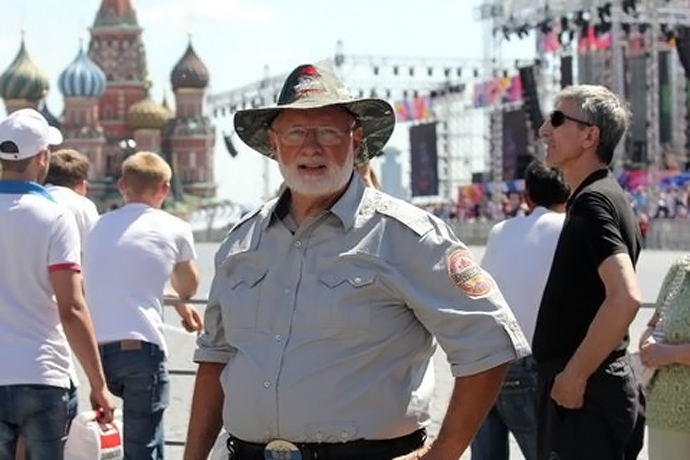
RT: Would you call your own educational campaign a success? Is it possible that public opinion in the West could shift radically? What would be necessary to facilitate a further shift in perception regarding the events?
JM: I would like to believe that my attempt has made a difference. What I know is that several hundred thousand people have read my stories and interviews. I have not received any feedback, but I still think it was important. The job is not finished. I will continue my fight until the United States officially recognize[s] South Ossetia and Abkhazia.
One-sidedness replaced by standoffishness
Among ordinary people and politicians from Russia, Georgia and South Ossetia seeking the settlement of the conflict, it might seem surprising that Western officials and journalists no longer find the region worthy of attention. One possible explanation was offered by Dmitry Medvedev in his interview with Rustavi TV.
“I have discussed all these issues with foreign partners … and in private they all expressed one common position – ‘we understand that there was a military aggression, we are not going to talk about it but please settle it between yourselves and try to calm down your adversary and reach the situation in which no one suffers.’”
As we can see now, it was not this approach, but the radical change of the Georgian regime that allowed the humble result we can see today to be reached. But there is still time for the world to change the attitude to the problem and help bring more stability to the region.













